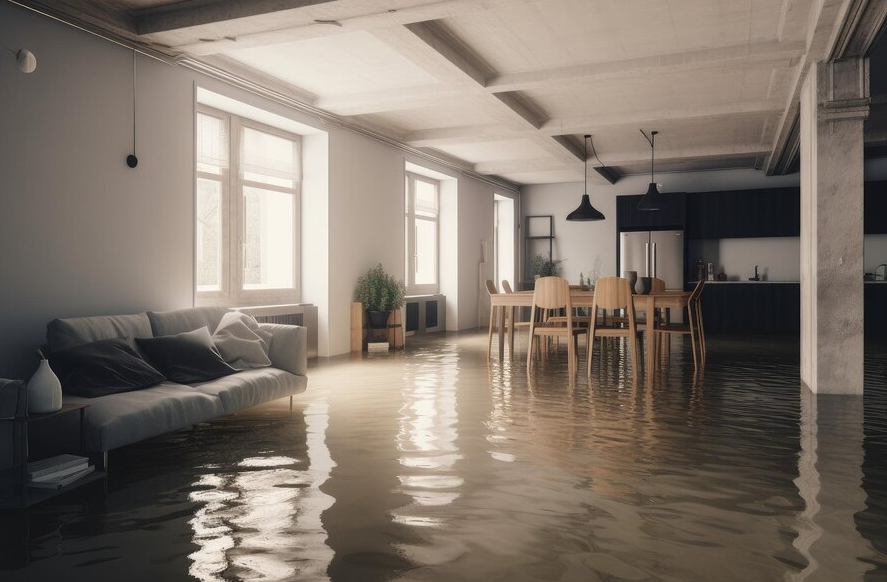Custom garage doors are more than just an entryway for your car—they’re a shield against whatever nature throws at your home. If you’re living where winter bites hard, summers are scorching, or storms hit without warning, picking the right garage door matters a lot more than you might think. The wrong choice can leave you with drafts, leaks, or even a door that just won’t open when you need it most. So, let’s take a look at what makes certain custom garage doors the real MVPs when it comes to standing up to harsh climates. Custom garage doors can make all the difference!
Weather Warriors: Which Materials Stand Tall?
Not all garage door materials are created equal, especially when the weather doesn’t play nice. Wood, for example, might look classic and cozy, but if you’re dealing with lots of rain or big swings in temperature, wood can swell, crack, or even rot over time. On the other hand, steel is like the superhero of garage door materials—strong, hard to dent, and doesn’t mind a little snow or hail. But bare steel can rust, so you’ll want it coated or painted.
Then there’s fiberglass, which is like the cool cousin—lightweight, handles salty air near the coast, and doesn’t warp. Aluminum is another solid pick, especially if you’re in a humid climate, but it can pick up dents like a magnet if you have active kids or sports equipment around.
| Material | Harsh Climate Strengths | Watch Outs |
|---|---|---|
| Steel | Resists snow, wind, and storms; durable for all seasons | Needs coating to prevent rust |
| Fiberglass | Handles moisture, salt air, and temperature swings | Can crack in extreme cold |
| Aluminum | Lightweight, resists corrosion, great for humid places | Dents easier than steel |
| Wood | Insulates well if treated regularly | Needs lots of upkeep; can warp or rot |
Insulation: The Secret Sauce for Year-Round Comfort
When it comes to tough weather, insulation is like having a cozy blanket wrapped around your garage. A well-insulated door keeps the frigid air out during winter and the heat at bay in summer. If you’re in a spot with wild temperature swings, skip the single-layer doors. Go for double- or even triple-layer doors with a solid core of insulation (like polyurethane or polystyrene). This doesn’t just help with temperature—it also keeps your garage quieter, which is perfect if you like working on projects or using your garage for more than just parking.
A lot of people don’t think about the seals around the door either. These rubber or vinyl strips at the bottom and sides are your first defense against wind, rain, and even critters. If you’re customizing, ask about heavy-duty weather seals. They make a bigger difference than you’d expect!
Hardware That Won’t Let You Down
It’s easy to focus on the door itself, but the hardware—like springs, tracks, and hinges—needs to be up for the challenge too. In places with salty air (think coastal towns), you’ll want stainless steel or galvanized hardware so you’re not dealing with rust after a couple of seasons. For icy or snowy climates, make sure the moving parts are built for cold and won’t seize up when the mercury drops.
Wind resistance is another biggie. Some custom garage doors are built with reinforced panels and stronger tracks, so they won’t buckle in crazy windstorms. If storms are common in your area, ask your installer about doors with wind-load reinforcements.
“A garage door that fits your climate isn’t just about looks—it’s about peace of mind, no matter what the forecast says.”
Style That Goes the Distance
Just because you need a tough garage door doesn’t mean you have to sacrifice style. Many custom garage doors offer finishes that mimic wood without the high maintenance, or bold colors that resist fading in the sun. If you want windows, look for insulated glass that won’t fog up or leak heat.
One of the perks of customizing is picking every detail to fit your taste and your local weather. Whether you want something modern, rustic, or totally unique, there’s a way to make it work without giving up on durability or comfort.
Wrapping Up: Make Your Choice Count
Picking the best garage door for a tough climate isn’t just about what’s trendy—it’s about what will last and make your life easier. Materials like steel or fiberglass, good insulation, tough hardware, and weatherproof finishes are all part of the equation. Don’t forget to ask plenty of questions and think about the conditions your door will face all year round. In the end, the right custom garage doors aren’t just an upgrade—they’re an investment in your home’s comfort, safety, and style, no matter how wild the weather gets outside.
Read More: Brooklyn Garage Door Repair




